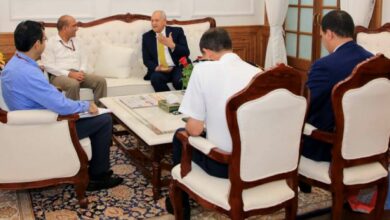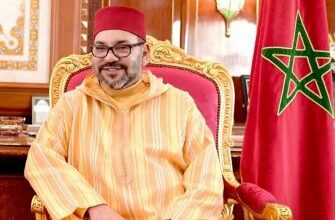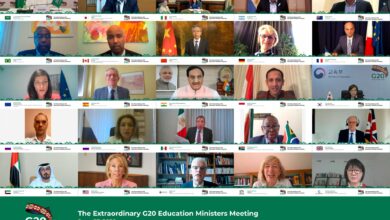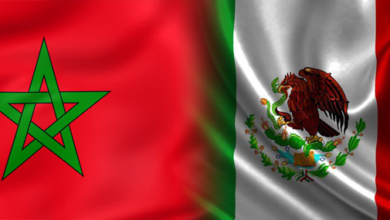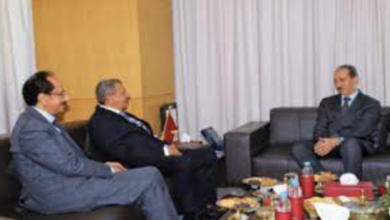HM the King: Ulema Must Exert Positive Influence on People by Highlighting Virtues of Moderation Balance
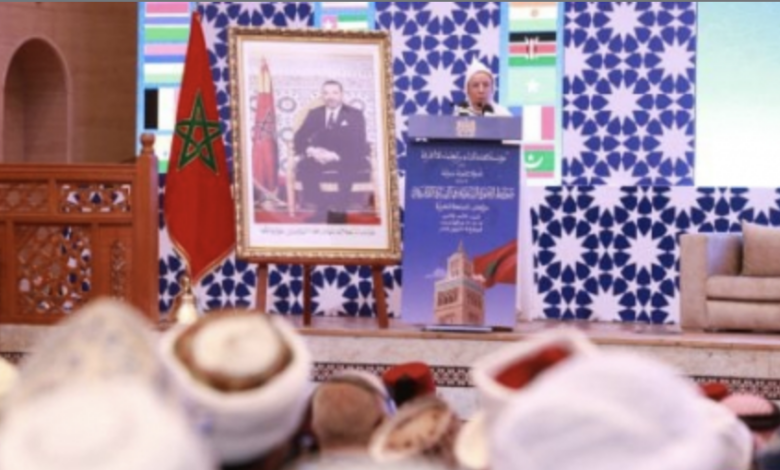
In a message addressed to participants in a symposium on the theme “The rules of Fatwa in the African context”, being held from July 8 to 10 in Marrakech, the Sovereign pointed out that Ulema have always been entrusted with a noble mission, which today is gaining in sensitivity and complexity, noting that the duty of scholars is all the more imperative “as perverted extremists present most of their views as fatwas, exploiting the sanctity of fatwa in people’s minds.”
The Commander of the Faithful added: “In order to protect the faith willed for us by the Almighty, I took measures to create an institutional framework for the issuing of fatwas in the Kingdom of Morocco, making it a collective endeavor falling within the remit of the Higher Ulema Council.”
It is up to the Ulema, on the other hand, to initiate the community individually to the rest of the provisions of religion that do not fall within the scope of the Fatwa, continued HM the King in this message, which was read out by the Minister of Endowments and Islamic Affairs, Mr. Ahmed Toufiq.
“This is, perhaps, the approach that African countries should adopt, namely to entrust the issuing of fatwas on public affairs to a collective institution made up of moderate, trustworthy religious scholars committed to the immutable values and madhab of their country,” the Sovereign assured.
Emphasizing the importance for the Ulema of Africa to engage in periodic collaboration and consultation in order to keep abreast of new variants in the demand for and formulation of fatwas, HM the King indicated that it is up to the African Ulema in charge of issuing fatwas to develop more skills and to engage in exchanges notably around the jurisprudence of reality (or Fiqh al-Waqi’).
“They should also record the findings of their research work through all electronic means available in order to benefit more people and contribute to better qualification of religious leaders,” continued the Commander of the Faithful.
Welcoming the symposium as an initiative of the Mohammed VI Foundation for African Ulema, HM the King pointed out that this institution, created at the Sovereign’s instigation, has devoted its eight years of existence to achieving the objectives initially assigned to it, which essentially consist in pooling and coordinating the joint efforts of Moroccan ulema and their counterparts in African Muslim countries to promote and firmly establish the values of tolerant Islam.
“Its mission is also to ensure, through initiatives of its own, that the sense of moderation, the spirit of conciliation and the propensity for Ijtihad are the catalysts of any reform aimed at consolidating the foundations of development, on the scale of the entire African continent or within any one of its countries,” recalled HM the King.
The Commander of the Faithful added that His first concern in creating the Mohammed VI Foundation for African Ulema was that it should “leverage the rich heritage bequeathed by our righteous ancestors over the centuries in the Kingdom of Morocco as well as in sub-Saharan African countries.”
These ties draw their essence from the intangibility of the religious values that Morocco shares with brotherly African countries in terms of faith and Sunni rites, which have the major characteristic of advocating moderation, insisted the Sovereign, noting that these immutable principles are rooted in the codes of conduct instituted by Sufi orders and in the foundations of Sharia sciences, brought down to us through successive lineages of trustworthy sheikhs.
Morocco, added His Majesty the King, is linked to the Mashyakhas of African Sufi brotherhoods through centuries of exchange and interaction.
His Majesty the King also called on the participants in this Colloquium to adopt a dynamic of virtuous interaction, to deploy their inventiveness and to exchange their respective experiences. “This should make it possible for each group of religious scholars in a given country to benefit from the knowledge and proficiency of all African Ulema who commit to this initiative. It goes without saying that the right of religious scholars in each country to take into account their own particularities shall be preserved.”
The Commander of the Faithful was keen to point out that the work of this Colloquium, which aims to define the conceptual field of Fatwa, can only be fully successful if Alimates are involved in all aspects of this undertaking. “This is because, in our religion, women are sisters of men in terms of rulings,” writes the Sovereign, pointing out that the Kingdom of Morocco, availing itself of this postulate of equality, entrusts the religious guidance of citizens, both men and women, to Alimats and Morshidats.
In the same spirit, women play a leading role in the religious guidance provided by the mass media, concludes the Sovereign.
ALdar : LA MAP

